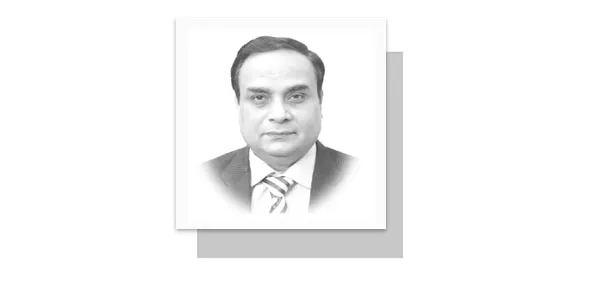On 8 May, Uzbekistan’s incumbent President Shavkat Mirziyoyev announced snap presidential election, which are now set to take place on July 9 more than three years ahead of the originally scheduled date in 2026 which shows height of “political sacrifice”, “maturity” and “diversity” in the country. The Central Election Commission has registered four candidates: Shavkat Mirziyoyev of Liberal Democratic Party, Ulugbek Inoyatov of the People’s Democratic Party, the Ecological Party’s Abdushuqur Khamzayev and Robakhon Makhmudova, the only woman in the race, from the Adolat (Justice) Party.
Critical analysis reveals that “rebalancing” of power structure among the branches of government, new goals for “good governance”, increased expectations and “accountability” from the general public as well as challenging domestic and international situations are the main “reasons” for holding a snap presidential election in Uzbekistan. There has not been any “institutionalized” policy or specific plan to prolong the presidential tenure of the incumbent President Mirziyoyev as propagated by the western media and think tanks because the upcoming election is “actually” being held three years earlier which means that “power grabbing” is not the “real motive” rather “political liberalization” is the real cause of holding a snap election in the country.
It seems that the incumbent president’s election campaign centred on “social issues”, pertaining to strengthening education. The woman presidential candidate Makhmudova has built her campaign around “principles” including the protection of workers’ rights and provision of jobs, with specific proposals to improve the judicial and legal system. Inoyatov’s electoral campaign includes a “pledge” to increase the construction of affordable housing; to grant local investors the same benefits foreign ones are entitled to and to tax on media workers including bloggers who make more than the average wage through online advertising.
Khamzaev has developed “Green Uzbekistan 2023”, and advocates for abandoning the use of pesticides, gradually reducing the use of plastic in packaging and increasing the fines for pollutant emissions by up to ten times. He also proposed planting forests on the dried seabed of the Aral Sea and expanding green areas in north-western Uzbekistan, around Nukus, Bukhara, Urgench, Khiva, Navoi and Muinak. It predicts that snap presidential election is poised to have a “profound effect” on Uzbekistan’s future trajectory. The success of incumbent president Mirziyoyev would further “strengthen” the pace, scope, utility, innovation and strategic importance of ongoing “structural reforms”.
Hopefully, the concept of “New Uzbekistan” will be further rejuvenated in the new era. His core electoral manifestation consists of further reforms in medicine, education, economy and environment which “vividly” reflects “vastness” of his political canvass attracting common voters for achieving the desired goals of qualitative human capital, social development, economic sustainability and environment-friendly policies in the future. Thus “political continuation”, “constant structural reforms”, “economic concessions”, “charged social contribution”, “administrative competence” and last but not the least, “people’s compassion” would be guaranteed.
Additionally, his foreign policy of further strengthening of regionalism, regional connectivity, regional trade and peace would be further consolidated. In this connection, in January 2023, Uzbekistan reached a historic border deal with Kyrgyzstan, ostensibly putting an end to more than 30 years of border skirmishes between the two countries.
Other countries beyond the region like Pakistan also view Uzbekistan under Mirziyoyev as “strategic partner” for achieving the desired goals of greater regional connectivity between Central Asia and South Asia through integrated transport and railway mega projects. Under Mirziyoyev, Uzbekistan has become an important partner for international institutions and foreign countries looking to make inroads in the region. Thus “openness”, “modernization”, “inclusiveness”, “qualitative industrialization” and “environment friendly policies” would further consolidate Uzbekistan’s important position in the region and beyond after the election.
I would like to respond to the “pre-election” report published by the Organization for Security and Cooperation in Europe’s Office for Democratic Institutions and Human Rights, or ODIHR labelling the ongoing electioneering as so-called futile, fractured, faulty and farce owning to so-called limited political choice, absence of alternative, lack of political dynamism and last but not the least, political coercion in Uzbekistan.
It seems that the OSCE’s report “lacks credibility” and “wider acceptability” because of its “prejudiced comments” about Uzbekistan and its people. It has its own “unique” political system which is based on “mutual respect”, “dignity”, and “peaceful persuasion” of national policies. The chances of a “Private Candidate” is not matured enough not because of any alternative or lack of political activism but “sustainable partnership” among the state, political parties, civil society and common people. The concept of “privacy” is sacred in the centuries old traditions of Uzbekistan which does not carry any scope for a private candidate. Thus it is not a matter of political coercion but a “holistic historic reflection” in its functional political system.
The participation of a woman in the upcoming presidential race as a candidate completely “negates” the western propaganda about so-called lack of political diversity and existence of any political opposition in Uzbekistan. The electoral system of Uzbekistan always promotes “healthy”, “constructive”, “positive”, “productive” and “participatory” competition among the various political parties and actors in the country. Moreover, “no political party” is allowed to contest any election on the basis of “regionalism, provincialism, linguistic, racialism, discrimination, religion, hate, stigmatization, sensitization and character assassination which is the real beauty of its electoral system.
Due to which unfortunately, fool westerns term it lack of so-called political vibrancy, electoral velocity and last but not the least people’s low interest in the national politics which is totally “untrue”, “false” and “fake” notion. On the other hand, “high turn-out”, “massive participation” of the young voters, “eagerly voting” of the elderly people, “integrated supervision of the civil society”, “independence of the Chief Election Commission” and “impartiality of all the organs of the state” of holding free, fair and transparent election all speak a democratic Uzbekistan. Thus OSCE’s report does not have any “substance” but self-conceived circles of darkness.
—The writer is Executive Director, Centre for South Asia & International Studies, Islamabad, regional expert China, BRI & CPEC & senior analyst, world affairs, Pakistan Observer.
Email: [email protected]










